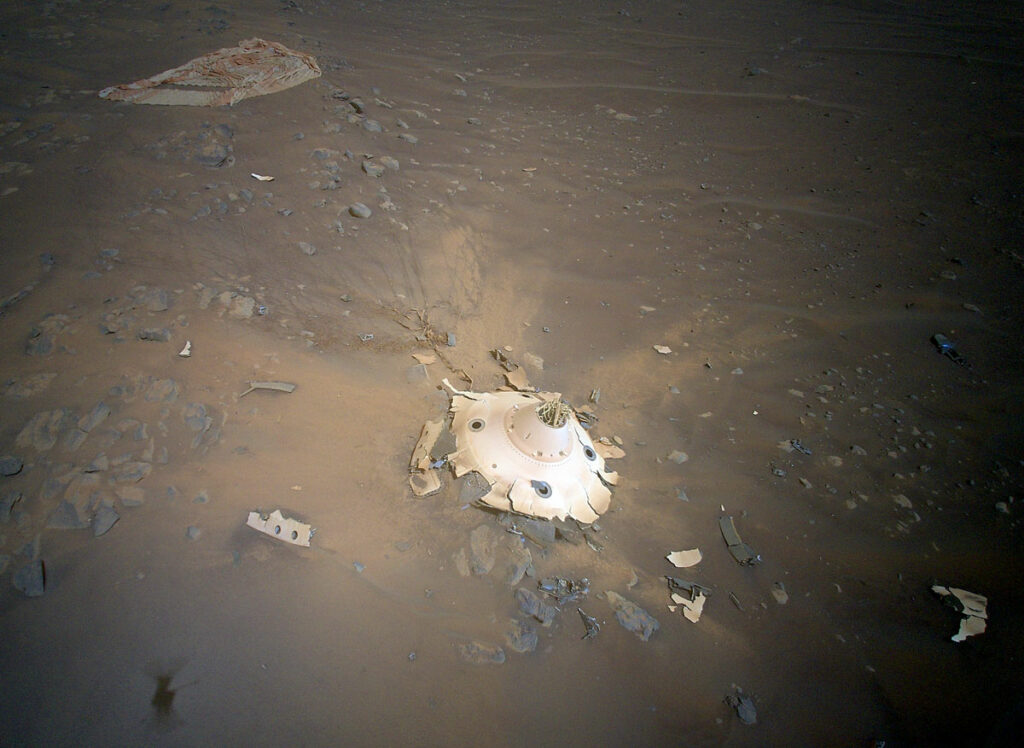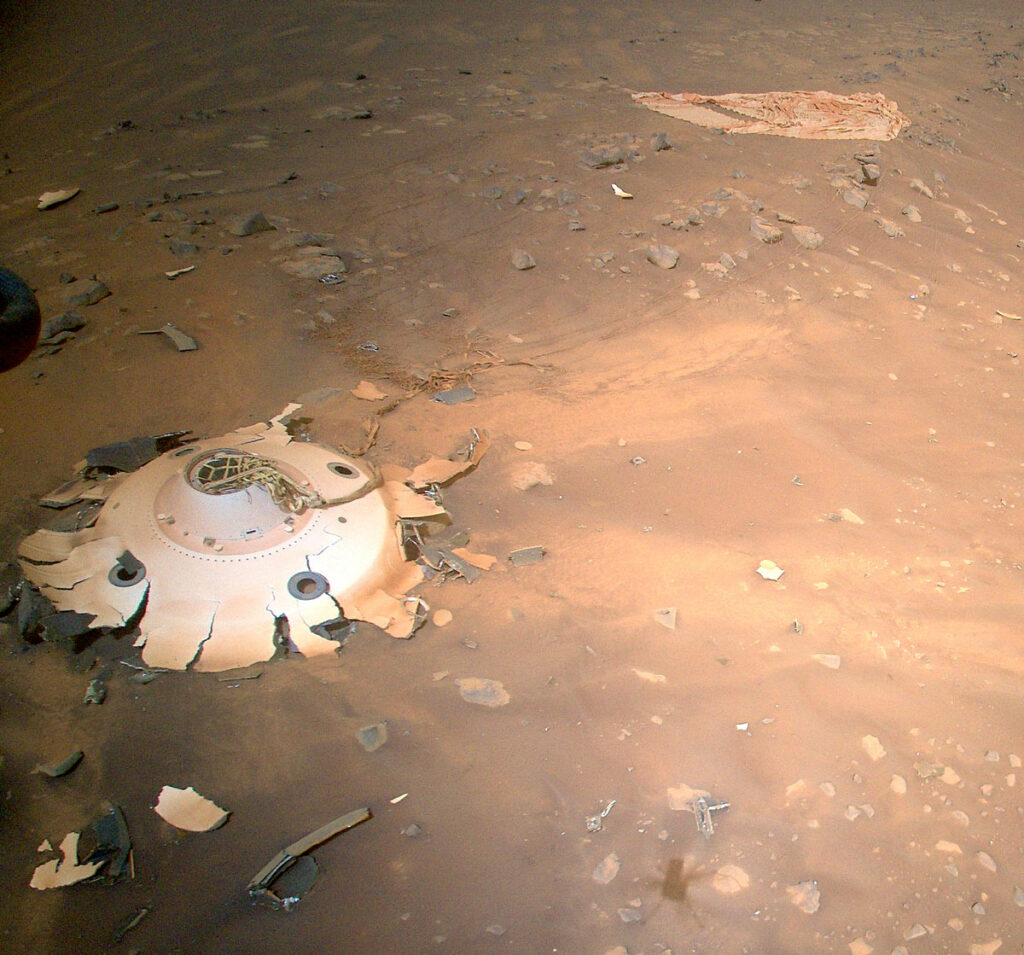During its recent flight, the Ingenuity drone helicopter took photos of the parachute that was used to land the Perseverance rover in February 2021. Their analysis will help NASA engineers in developing a landing system that will be used during the mission. Its goal will be to deliver samples of Martian soil to Earth.
Perseverance Rover Landing
The capsule with the Mars rover and the Ingenuity drone attached to its bottom entered the Martian atmosphere on February 18, 2021. At an altitude of 11 km, a drogue parachute was released, the diameter of the dome of which was 21.5 m. It reduced the speed of descent of Perseverance from 1500 to 320 km/h. Then, at an altitude of 2.1 km, the upper part of the protective coating, together with the parachute, was dropped, after which the “Sky Crane” system was connected, gently landing the rover on the Martian surface.

The descent of Perseverance was photographed from space by the MRO apparatus. Later, it took photos of the crash site of the dropped parachute with a coat. They were also photographed from afar and by Perseverance. But NASA engineers wanted to get more detailed photos of the parachute. Their analysis could provide very valuable information about its behavior in the Martian atmosphere, which in turn would help in the development of the Mars Sample Return mission. The purpose of the mission is to deliver soil samples of the Red Planet to Earth. Therefore, they decided to use the Ingenuity helicopter.
Perseverance Rover Parachute
On April 19, Ingenuity made its 26th flight. As with previous missions, its main goal was to move the spacecraft closer to the remains of an ancient river delta, which will become a new object of study for the Perseverance rover. But since the flight path of the drone passed near the place where the parachute fell, the engineers persuaded the mission specialists to adjust the flight plan so that the rotorcraft flew directly over it and took color pictures.

In total, Ingenuity took ten photos. They demonstrate a protective coating that crashed from an impact at a speed of 126 km /h, as well as the parachute. Preliminary analysis of the images suggests that it was practically not injured during the opening and descent. The parachute slings look intact, and there are also no signs of damage in its dome. At the same time, according to experts, they will need several more weeks to make a final conclusion.
According to https://mars.nasa.gov
Follow us on Twitter to get the most interesting space news in time
https://twitter.com/ust_magazine

